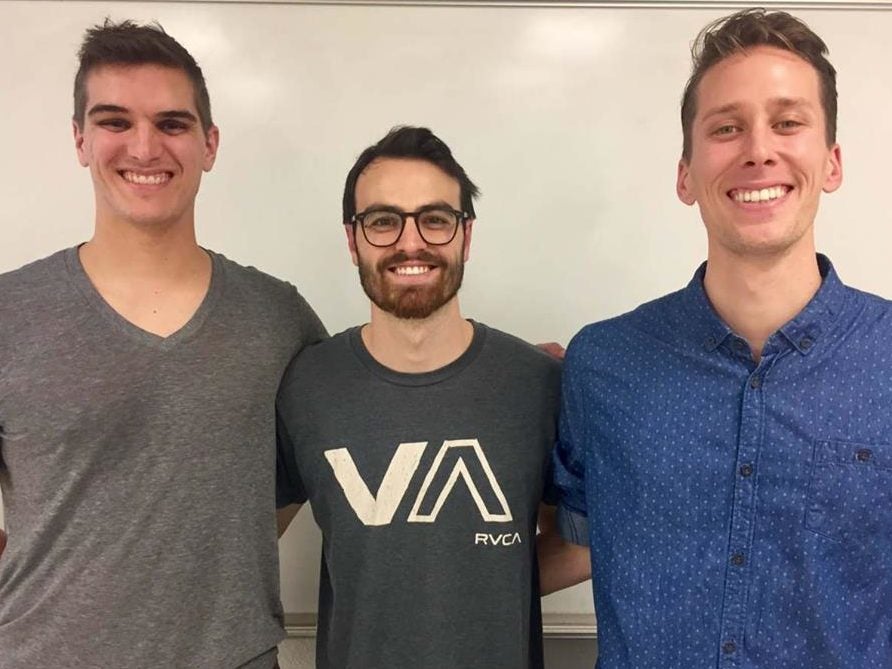
A website dubbing itself the “Rotten Tomatoes for news” is about to launch a system for journalists and members of the public to rate and review the credibility of news articles.
US-based start-up Credder is positioning itself as a competitor to Newsguard, the news rating tool which ranked for all major UK newsbrands last month according to a nine-factor system.
Credder, so named because it aims to be the website “dishing out credibility”, will show article rating pages featuring a Critic Rating, indicating the percentage of positive reviews from verified journalists, and a User Rating, showing the same measurement from other news consumers.
Co-founder Chase Palmieri told Press Gazette the website would “make news compete for trust instead of clicks, and then drive traffic and revenue to trusted sources”.
Explaining why Credder could be compared to film rating site Rotten Tomatoes, Palmieri said: “Rotten Tomatoes doesn’t tell you what movie to watch, but instead provides you with viewers’ feedback so you can decide for yourself. Credder works the same way.
“It’s our job to gather news consumers’ feedback, hold the articles, authors, and outlets accountable with ratings, and be a delightful place to get your news.”
He added that Rotten Tomatoes co-founder and former chief executive Patrick Lee was Credder’s first adviser.

Users can also rate the writers of individual articles and the publication they came from, which will be ranked on leaderboards, and submit reviews to explain their ratings.
At the time of writing the BBC has a 67 per cent rating on Credder (although no professional journalists have reviewed it) while Bloomberg is on 80 per cent and the Washington Post is on 100 per cent.
Gold Cheddar Cheese ratings are given to articles, authors and outlets with a rating of 70 per cent or higher, Provolone Cheese ratings are between 30 to 70 per cent, and Mouldy Cheese is for those with a score of 30 per cent or less.
Palmieri, also a restaurant owner, said the idea came after he saw how the public’s ability to leave reviews on websites like Yelp had changed the hospitality industry.
“At the same time, my friends and I were news junkies, and we saw the amount of clickbait and sensationalism on the rise with no end in sight,” he said.
“That’s when we realised the only solution that didn’t require censorship was to simply give news consumers a way to hold news producers accountable for their work.”
The tool is currently being tested by journalists and some other users in the UK, US, Australia and Canada and opens to the public on 27 May through the Credder website, app, and a Google Chrome browser extension.
Palmieri distanced Credder from Newsguard, the New York-based start-up that hands out “green” and “red” scores – which it calls nutrition labels – to news websites based on their trustworthiness.
The rating tool was criticised in January when it gave Mail Online in the US the same red rating as Kremlin-backed news websites RT (formerly Russia Today) and Sputnik for failing to uphold “basic standards of accuracy or accountability”.
Newsguard later changed the rating to green following “discussions” with an unnamed Daily Mail executive, saying: “We were wrong.” Currently all the major UK news websites have a green rating.
Palmieri (pictured centre with co-founders Austin Walter and Jared Fesler) told Press Gazette his team is following Newsguard “very closely, not just because they’re a potential competitor, but because their approach and team kind of terrify us”.
“Newsguard has a top-down approach, telling readers who to trust and labelling outlets as red, yellow, or green,” he said.
“Credder is a bottom-up approach that allows the public to review articles, generating a rating not just for outlets, but also the authors and articles themselves.
“Here’s what really troubles us about Newsguard. They proudly tout an Advisory Board which includes former director of the CIA Michael Hayden and former Secretary of Homeland Security Tom Ridge.
“Maybe I’m paranoid, but I don’t want high-ranking government officials anywhere near a news rating site.”
Newsguard says on its website that its advisory board provides only strategic advice and has no say in ratings.
Newsguard chief executive Gordon Crovitz previously told Press Gazette: “What we found early on is that a significant amount of misinformation and disinformation online emanates from state actors and we wanted some guidance from people who are experts on those issues to help us understand why we were seeing so much of that kind of disinformation.
“They play no day-to-day role in the ratings or rankings, including of the disinformation websites. But it has been quite useful for us to have them…”
Email pged@pressgazette.co.uk to point out mistakes, provide story tips or send in a letter for publication on our "Letters Page" blog
